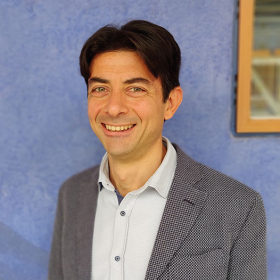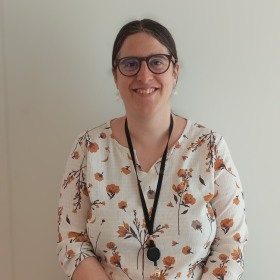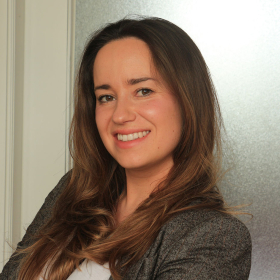

Nicola, European Commission (Eurostat)
"Official statistics are not just dry numbers: they are the lifeblood of democracy. They are essential for policy makers to make informed decisions, as well as to inform citizens on how economies and societies evolve, so that they can form their own opinion.
I am proud to work in Eurostat’s Directorate on Macroeconomic statistics, as the figures we produce – for instance on Gross Domestic Product or Household Price Index (i.e. inflation), just to mention two very well-known macroeconomic indicators –, crucially support the economic policy of the EU."

Aude, European Parliament
"Multilingualism - the possibility to express and inform oneself in any official language - plays a key role in Europe. This makes my work at the European Parliament’s Directorate-General for Translation useful. As the leader of the team responsible for TRAD’s statistics, I can analyse and make available information about the use of languages, as well as show the work of our translators. I like the fact that my work includes different skills. I am working with the technical part of data processing as well as the design of metrics to monitor the situation. Therefore, collecting, cleaning and organizing data is my daily job, in addition to creating new metrics fitting our management needs and issuing/reworking our indicators set."
Martin, European Commission (Eurostat)
"At Eurostat we’re developing the European statistics of tomorrow.
As a statistician, I could not have been part of such a variety of challenging and meaningful projects anywhere else.
At the heart of the European Statistical System, this is the place to do exciting stuff while making a difference!"

Andrea, European Commission (Eurostat)
"I have always wanted a job with a purpose – to make society a little bit better. And a healthy society starts with information you can trust.
Working at Eurostat allows me to contribute to the public interest and provide the reliable data that our policymakers – and all of us – depend on. Even before I worked here, my friends and I used to send each other Eurostat infographics if we wanted to prove a point, so it’s great to be at the source now.
Plus, it’s an interesting, appreciative, and multicultural workplace!
I came to Eurostat through the Generalist/Graduate competition, after first working as a trainee for the EU agency for energy regulation in Ljubljana. Work at Eurostat is very varied: we have a lot of contact with other Directorates-General (DGs)of the Commission, but we also work closely with Member States. I personally work with data on digitalisation and internet use, which is such a fast-changing topic that it always keeps me on my toes.
As Eurostat’s Youth Correspondent, I also have a special interest in ensuring that our work reflects the needs and perspectives of the younger generation. We are all working together to shape the EU of tomorrow – if you want to be a part of it, check out the EPSO website and apply!"

